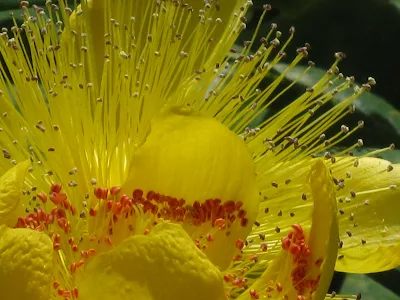In the fall of 1973
I had no real plans for my future after I graduated from university in 1973; with no plans and no ambition it was a fairly aimless time that followed. But I did have two interests, one was writing poetry, the other were the writings of the Indian teacher J. Krishnamurti who had once been a famous speaker, a famous guru, but by 1973 his fame had somewhat faded. It was only by chance that I came across Krishnamurti’s writings, there is a chapter on Krishnamurti in Henry Miller’s The Books in My Life, and this is possibly where I first heard of Krishnamurti. I also remember hearing and visiting Swami Shyam who was popular in Montreal in the early 1970s, I was one of many who received a mantra from him. I was one of the young seekers, just a face in a crowd, who visited Geof Stirling’s house where Swami Shyam was staying. But I was never a follower, never a believer, never a joiner of groups or organizations, I never have been and I’m still not. I think what Krishnamurti was to me was therapy, not really learning about spiritual ideals but learning about myself. After I received a mantra from Swami Shyam I sat every night for about three months repeating it but by early 1973 I was wary of mantras, swamis, and meditation; but it wasn't just Krishnamurti who dissuaded me from following a guru, it was my own innate disbelief in gurus and the people who followed them. Krishnamurti didn't want you be a follower or believe in anything, he wanted people to think for themselves. The months of late 1973 and early 1974, after graduating from university, dragged on and in the spring of 1974 I decided to go to Saanen, Switzerland, to attend Krishnamurti’s public talks given there every year; at the time I still didn't know anybody who was interested in Krishnamurti's teachings or in Krishnamurti. One of my professors had become a Tibetan Buddhist and published a book length poem on Milarepa, I think his complaint was that Krishnamurti was too intellectual for him, too lacking ritual, but this is what I always liked about Krishnamurti, that he was not a part of the guru industry being exported to the West by India and Tibet. So, in early July 1974, I flew from Montreal to Zurich and from there I took a train to Sannen which is about two miles from Gstaad, a holiday resort for wealthy people. I think it was my first day there that I met Patrick McCarty, who was from California, and Sally Lake, from England. The three of us, Pat, Sally, and myself, became friends and between attending Krishnamurti’s Talks we travelled a bit, for instance to Lake Maggiore; at the end of the Talks we decided that we would meet again in the UK; perhaps it was only a week or ten days later when we met at Sally’s mother’s home in Crowborough and we planned to meet Sally's uncle, Reg Skinner, of whom Sally often spoke; Reg was also interested in Krishnamurti, and he seemed to be someone worth meeting.
 |
| This is Reg Skinner's home, Boisville, located at 7 Sandhurst lane, Blackwater, Camberley. Photo from Google Street View |
Meeting RR
It was in mid-August 1974 that I met Reg (Reginald Rice) Skinner, or RR, at his home in Blackwater, near Camberley. Reg had retired the previous year, he had worked as a chiropodist (not, as he told me, affiliated with the NHS) with his surgery at his home and he was about 66 years old. Joan, Reg’s common law wife, had died of cancer in 1972 and he recounted to me his married life with her. Reg's home, Boisville, was named by the contractors who built it about forty years before and it had been given to Reg and Joan by their friend and the previous owner of the house, Mrs. Scott, with whom Reg and Joan lived, and who was affectionately named Mu; Mu had worked for the post office and now, in her mid-eighties, she lived in a residence, near Tekels Park, in Camberley. It occurs to me only now that Joan must have been the sister of Sally’s father who had died when Sally was young, she referred to RR as Uncle Reg. Boisville is pronounced “boy’s ville” and not “bois ville” with a French pronunciation; the “boys” having been the contractors who built that particular house. It was a white stucco building with a small garage beside it that was used as a workshop. There were a few topics that preoccupied RR, among them was his brother, Welby Skinner, his mother who had also been a spiritual teacher, Krishnamurti, Joan, beekeeping, and his own life experiences; but what interested him the most were “things appertaining”, his term for understanding life in its complexity and depth. Everything eventually devolved to “things appertaining”. I was to hear a lot about these topics from Reg.
.jpg) |
| Stephen Morrissey (right) with Reg Skinner in the garden at Boisville, Camberley, 26 August 1974 |
 |
| Reg Skinner |
.jpg)
.jpg)










